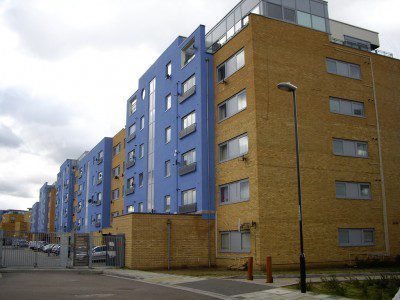
Rising Private Sector Rents
Higher housing costs – including private sector rents – have reduced incomes and increased inequality as the poorest families have borne the brunt of Britain’s 40-year housing crisis, according to a think tank, the Resolution Foundation.
In a research document called Inequality Street, it says that public concern over housing is on the rise: approaching one-in-five adults now believe it’s one of the most important issues facing Britain, up from one-in-20 back in 2001.
The foundation says housing crisis is really three crises: low home ownership, high housing costs and what it calls “a particularly acute disaster for low-income families.”
The think tank finds that home ownership among young families led by adults aged 25 to 34 has (despite a recent rise) almost halved since its 1989 peak – from 50 per cent to 28 per cent.
“High house prices relative to family incomes mean it will remain harder for young families to save a deposit large enough to get on the housing ladder” claims the foundation.
It says that back in 1980, the average family spent just 10p of every £1 of income on housing. Today, this has doubled to 20p.
This burden of rising housing costs has fallen more heavily on those families with lower incomes. Back in 1980, the poorest families spent 15p of every £1 of income on housing. Today it has more than doubled to 40p.
The foundation also claims that higher private sector and social rents, and declining support from housing benefit have been “a major living standards headwind” for Britain’s poorest families over the past 15 years, wiping out 90 per cent of all income gains since the early 2000s.
It believes that low-income families have suffered a £1,200 living standards hit from fast-rising housing costs since 2002.
At the same time, thanks to falling interest rates, high-income families are £400 better off as their housing costs have fallen in real terms since 2002. This means that recent trends in housing costs have acted to push up inequality in the UK.
“As incomes have not risen at anywhere near the same pace as housing costs, families have dedicated a greater share of their income to housing. This burden has landed most heavily on low-income families, particularly in recent years when housing costs have actually fallen for higher income families” says Daniel Tomlinson, research and policy analyst at the Resolution Foundation.
And he adds: “Over the next few weeks, we not only need to see election manifestos promising to address falling home ownership; we also need political parties that are serious about lowering the cost of a roof over your head for lower-income Britain.”
Blog Post from Letting Agent Today
See details of our Guaranteed Rent Scheme here


If you have any comments, please email the author of this article and click on the link above